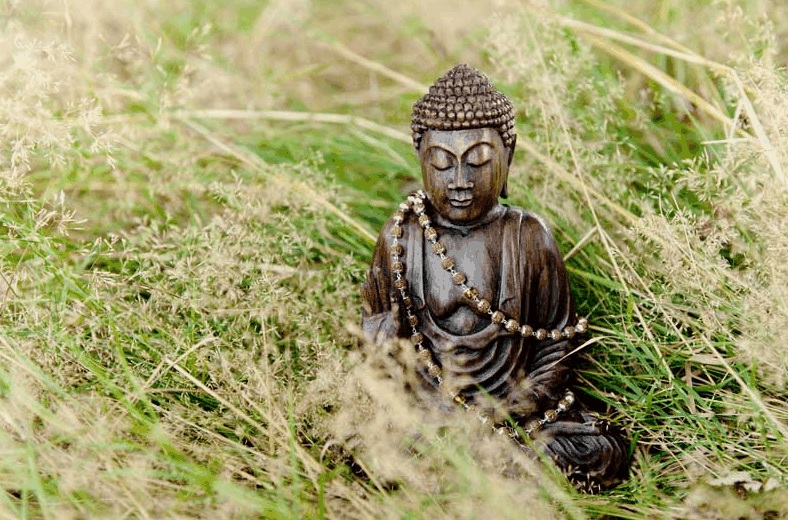
“If you concentrate on what you don’t have, you will never, ever have enough.” -Oprah Winfrey
When I’m not working on Tiny Buddha, I write for ‘tween girls, both as a contributor for a magazine and a ghost writer for a website.
Recently, I wrote several blog posts about the holiday season. One girl commented that she was excited to have received a $50 gift card and a few clothing items.
Everything changed for her when she read that another girl received a $500 gift card and an iPad, among other presents. Suddenly her gifts seemed completely inadequate.
While there’s a lesson in here about our consumer culture, and its effects on our children (the collective “our” since I don’t even have pets, let alone kids), this got me thinking about the comparison game we often play as adults.
It can be challenging to identify what we believe is enough and then feel satisfied with that if we consistently weigh our choices against other people’s.
In my book, I referenced some research that reveals we often adjust our spending based on the earners just above us, whether we can afford to or not. When the rich get richer and buy bigger houses, the earners just below them feel the need to go bigger—and this cascades down the economic ladder.
We end up with a lot of people buying houses farther away from work to get more value for their dollar, commuting longer hours, borrowing more, saving less, and spending beyond their means—which ultimately can decrease our overall life satisfaction. It’s largely because of that instinct to “keep up with the Jonses.” Not doing so can feel like defeat.
But is it really? What does it mean to succeed—to fill a life with things based on what other people think they need, or to fill our time with experiences based on what we truly want?
I’m not going to suggest we stop comparing ourselves to other people, because I prefer to work with human nature than against it. But maybe the trick is to be mindful of what we’re comparing, so it’s less about having the same things as people we imagine are happy, and more about making similar choices to people who truly are.
Those choices rarely have to do with anxiously chasing bigger and better in tomorrow, and everything to do with peacefully creating and appreciating enough today.
Photo by Mala Imports
About Lori Deschene
Lori Deschene is the founder of Tiny Buddha. She started the site after struggling with depression, bulimia, c-PTSD, and toxic shame so she could recycle her former pain into something useful and inspire others to do the same. You can find her books, including Tiny Buddha’s Gratitude Journal and Tiny Buddha’s Worry Journal, here and learn more about her eCourse, Recreate Your Life Story, if you’re ready to transform your life and become the person you want to be.
- Web |
- More Posts













 Though I run this site, it is not mine. It's ours. It's not about me. It's about us. Your stories and your wisdom are just as meaningful as mine.
Though I run this site, it is not mine. It's ours. It's not about me. It's about us. Your stories and your wisdom are just as meaningful as mine.
In my years working at nonprofits where the need was always far greater than the resources with which we worked, I came to subscribe to the “good enough” philosophy. Do what you can with what you’ve got and celebrate that. Seems to work in my personal life too. Always enjoy your nudges that get my soul a thinkin’…….
I think it’s an empowering attitude to do what you can with what you’ve got–and it encourages us to be creative and innovative. Sometimes it’s even more enjoyable to work with less. The Christmas I crocheted all my gifts because money was tight was the most fun and meaningful!
Hi Lori – This idea of keeping up with the Joneses keeps coming up for me. Just last week my daughter mentioned that she was struggling with this, while acknowledging she didn’t want to feel that way. I suggested she try seeing her blessings as absolute, not comparative. Also mentioned my favorite quote (haven’t been able to find any attribution): A man’s wealth is defined not by how much he has, but by how little he needs.
I don’t know if tweens can understand this, but it’s sure worth trying to teach them. Good for you for doing so!
I love that quote! I try to live by that, actually. It’s a freeing feeling to not have to maintain a car, for example. It’s one less bill and responsibility, which I love. How wonderful that you’re teaching your daughter to see things a little differently!
In early 200, my husband and I both were laid of from our jobs. We were unemployed for a over a year and during that time had no money had coming in, were eating away at our savings and raising our one year old daughter. It was painfully hard, yet it forced us to unplug from keeping up with the Jonses as we just couldn’t. Ever since then, I have looked at all that I do have with such love and gratitude. There are people who have more stuff, but my love for what is in front of me is what matters most.
A thoughtful post, thank you for binging it to us!
That’s beautiful Marion! I think sometimes losses can open us up to all the good things we have but don’t always recognize. That’s how it’s been for me when I’ve gotten laid off in the past. Suddenly things become a lot simpler and clearer.
I struggle with this idea a lot. I see all the ads, and I feel like I “gotta have it” even if I’ll rarely use the item. Keeping a gratitude journal has helped. When I take the time to write down all the blessings in my life, the appeal of new things diminishes. Who needs an iPad? My old laptop works great. 🙂
I was thinking the same thing! I recently did a focus group for technology, and there were tons of cool gadgets, but I just didn’t feel a need to have any of them. I would rather have the time it would take to earn the money to buy them. During other hours, my old laptop works just fine!
I’ve found adopting this philosophy to be very freeing in my own life. The major catalyst for changing my view on spending was discovering another blog, Mr Money Mustache, and reading it “cover to cover”. It’s dedicated primarily to personal finance, but the core philosophy really boils down to “Spend less money and you will be rich.” He means that both in terms of monetary richness and richness of life. I highly suggest checking it out for anyone who is struggling with this issue. Start at the beginning and real through in chronological order. It’s quite inspiring.
http://www.mrmoneymustache.com
Thanks for the link Quentin. It sounds like a wonderful site!
Divine discontent works for me. I’m truly happy with all I have and am happy to continue to have desires of the heart.
Divine discontent…that’s an interesting phrase! I’d love to hear more of your thoughts on that.
No surprise this turned up for me, it is obviously a theme I need to work on. My family is very blessed financially and yet even more can sometimes feel not enough. I find the best teachers for this lesson are my small children -6 years old & 14 months. We recently when to a small Pacific island for Christmas. While there we visited a local village. My 6 year old daughter saw the kids with no shoes running around in clothes obviously handed down and living in houses with barely any furniture and said to me, “Mum, they don’t have any stuff.”. I replied, “Is ‘stuff’ important?” She thought for a few seconds and then answered, “No, love is.” That’s going to be my mantra for the year.
Thanks for this post.
What a beautiful answer from your daughter. I am going to borrow that mantra. =)
I often experience this feeling. I have an amazing group of girlfriends who are high achievers and have created many wonderful success in their life. It is hard for us all to avoid comparing ourselves to each other and measuring our achievements against others. Some days, I feel extremely content with what I have and grateful for all the gifts I have in my life. But there are other times that those things feel small and insignificant compared to what my friends have.
For me, this has created an endless cycle of wanting and getting, wanting and getting…and yet never really feeling satisfied.
Recently I have committed to changing this, and I am really happy I came across this post. I am learning how to be proud and satisfied with where I am and what I have. I know that the more I appreciate this, the more wonderful things I will then attract.
That’s great Connie! I’ve fallen into that trap before, too. It’s tempting to play the comparison game from time to time. I most often do it with friends around my age who are married and/or have children. Then I remind myself that I am happy with the way it is now, even if I’ve done things a little differently.
Loved reading this, my sister and I were talking about the same thing last night. For example, I was brought up with luxurious things around me and I will not settle for less and I can’t because I think I’d be lying to myself, I sometimes expect people to like what I like and cannot understant when they ‘settle for less’ , but then I realised that its not settling for less but they could actually be happy with their lot. I’m not saying I’m a gold digger but I think when one accepts who they are then life is so much easier, I guess now that life has shown me a bit of what bad times are all about I am much wiser but I still know what I want. Great article Lori xx
Thanks Tina. I think you’re right that we all have different ideas about what we need. I know that some people require more than me to feel they have enough, and others require even less. To know ourselves is to be free, I think.
[…] that made me feel much less overwhelmed by the seemingly daunting task. Lori Deschene’s article on Tiny Buddha spoke to something I, and probably most of us at some point, have done before […]
For me, the issue isn’t financial comparisons … What this article reminds me of is the futility in comparing my relationships to others. I went through a painful marriage and divorce a few years ago, and sometimes I fall into the trap of comparing my life to that of others – posting adorable photos of their children or their weddings or their new homes, etc. By comparison, I then feel less satisfied with the life I’ve made for myself. That life involves meaningful work, graduate school, and time spent with friends. I’m satisfied with that life until the very moment at which I start comparing it to someone else’s. So, thanks for this reminder!